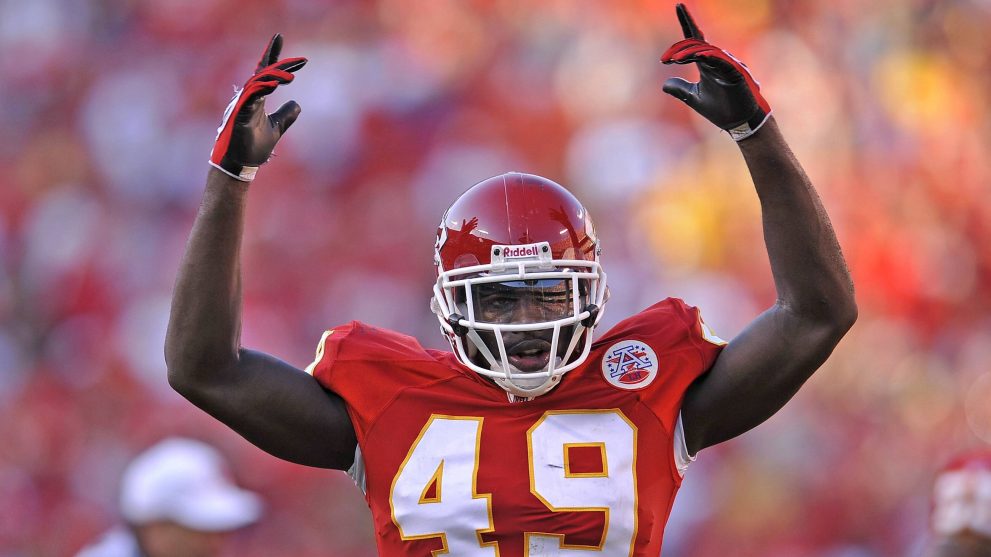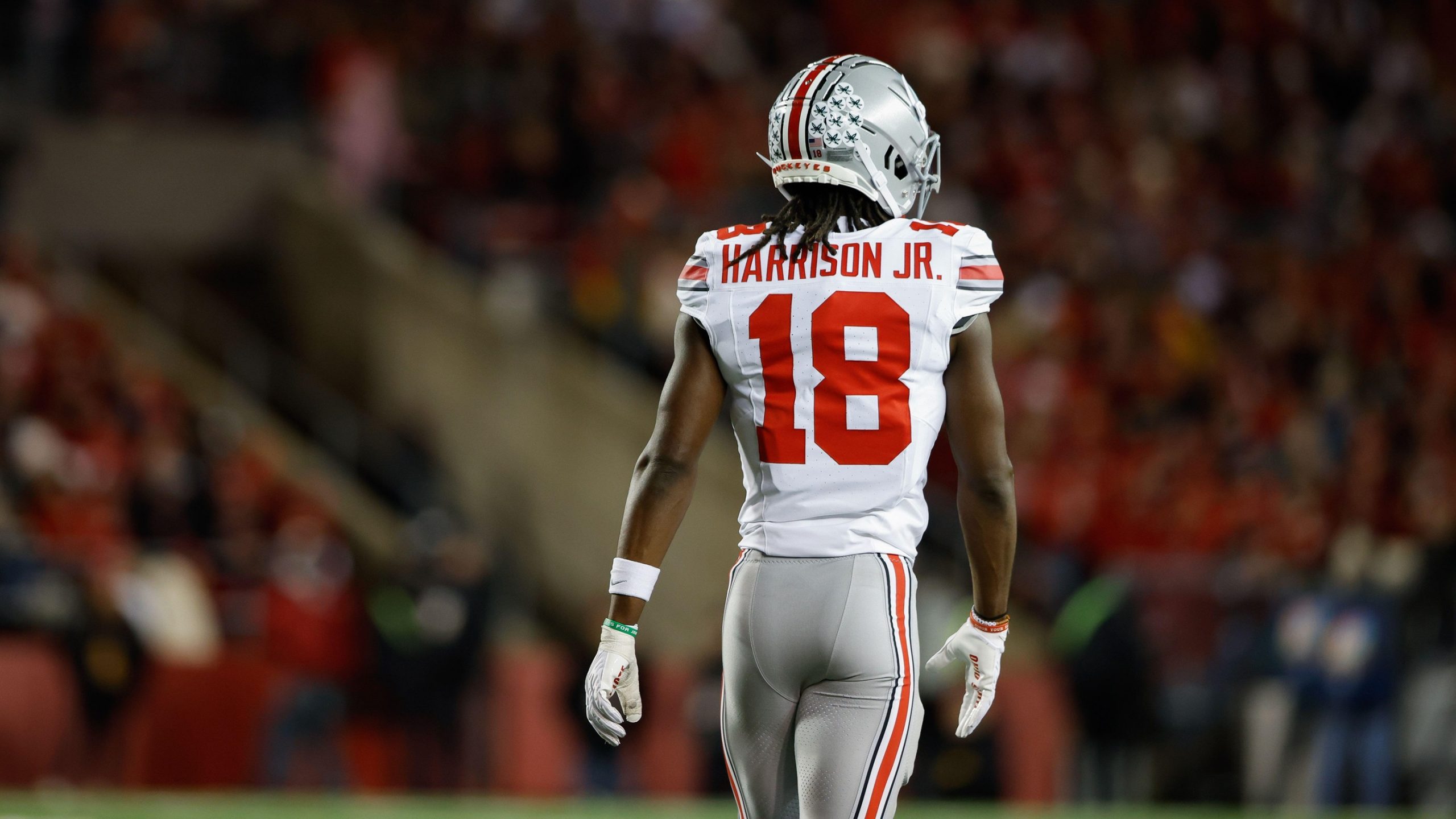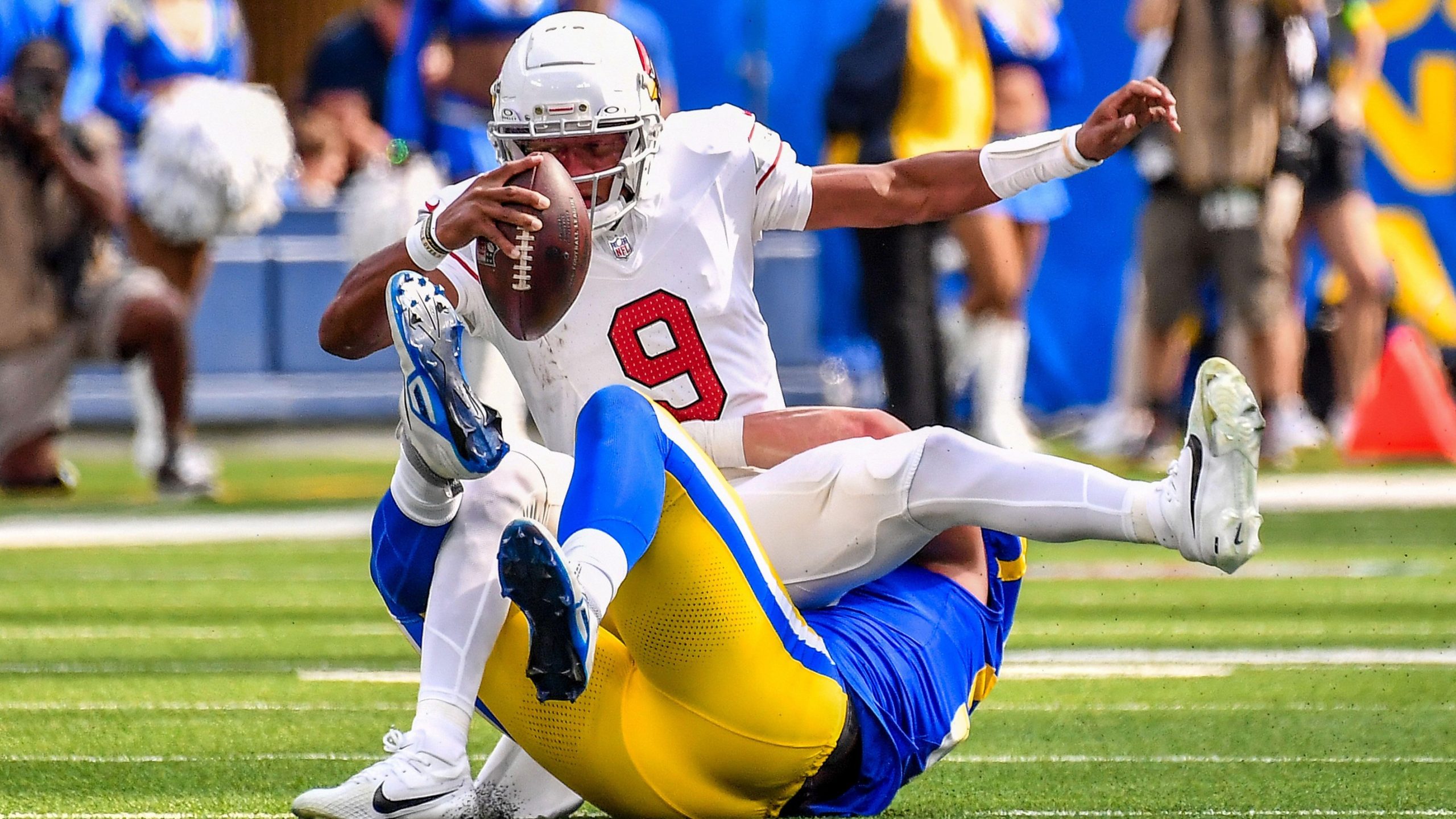Bernard Pollard played nine seasons in the NFL, but the hard-hitting safety was most known for a singular play: lunging at Tom Brady’s legs and causing a season-ending torn ACL in the opening game of the 2008 season.
A third-year safety for the Chiefs at the time, Pollard wasn’t even penalized for the hit, as the quarterback protection rules back then were much less pervasive.
On Wednesday — in the shadow of two controversial roughing the passer calls involving Brady and Derek Carr in Week 5 — I asked him what the ruling would have been in today’s NFL.
“Oh, heck yeah, (that’s a penalty),” Pollard told Compare.bet. “That play might get you suspended.”
September 7, 2008
Tom Brady vs Bernard Pollard
Patriots win game to increase their regular season winning streak to 20 but..
Brady is done for the season
Wonder if 31 YO Tom will ever fully recover – doubt it at that agepic.twitter.com/UOA3r3dsCF
— Boston Sports Info (@bostonsportsinf) September 7, 2022
The NFL has worked hard to enhance player safety in the past decade, but the 15-yard penalties on Atlanta’s Grady Jarrett and Kansas City’s Chris Jones have renewed the debate about where the line should be drawn.
Jarrett’s sack looked as normal as any other, and the infraction cost the Falcons a chance at a late-game comeback. Jones forced a fumble and landed on Carr with the football in his hand, but still got penalized.
“That’s today’s football, brother,” Pollard said. “It’s definitely gone too far. I think everybody understands the safety aspect, but when you look at this, things are overboard now. It doesn’t matter what rules you put in place. Guys are going to get hurt. Somebody said (Tuesday) the roughing the passer numbers were down a certain percentage. I don’t care about that.
“Freakin’ A. There’s no way you’re going to dodge concussions or ACLs or Achilles or all those other tears. It’s a violent game and people need to understand that.”
Pollard said the rules added to protect the quarterbacks have made it an unfair fight for defensive players.
“They want to pay every quarterback $200 million and protect those guys,” Pollard said. “No. Those guys are wearing pads like the rest of us. They’re just making way more money than everyone else on the football team.
“It’s bullcrap. It’s an easy way out to say they’re defenseless. You know everyone is coming after that thing that is in your hand.”
Pollard said quarterbacks can defend themselves by delivering the ball to receivers quickly. He understands the player safety aspect and doesn’t condone intentional helmet-to-helmet or low hits, but doesn’t believe quarterbacks should keep getting bailed out on borderline hits.
“A quarterback has the ball in their hands, and they want to make certain decisions to be elite and get paid top bucks,” Pollard said. “Well, that’s their job. Our job as a defensive football player is to go get whoever has that football. If you deliver that ball, we’re going to (switch our focus) to whoever caught that ball, and we’re going to take their head off.”
Pollard was known as the Patriot Killer during his career for being involved in plays that resulted in injuries to Brady, tight end Rob Gronkowski, running back Stevan Ridley and wide receiver Wes Welker.
To ALL the Patriot fans that call me a “cheap shot artist.” In 5 games playing against the Patriots this is the ONLY flag that was thrown against me. After the appeal the @NFL said “play was clean.” Y’all try again. #therealhitstick pic.twitter.com/d9E2pZDlUi
— Bernard Pollard Jr (@Crushboy31) July 5, 2019
He amassed multiple fines for late hits and unnecessary roughness and said he took pride in using intimidation as a weapon while patrolling the middle of the field.
“My job was to make your training staff get you off this football field,” said Pollard, who was nicknamed the “Bone Crusher” at Purdue. “Whether that’s assisting you to get off the football field or them calling the John Deere (cart) to come pick you up. I played that way. I had a physical game, and I loved my physical game.”
These days?
“A lot of players, they’re not like that any more,” Pollard said.
If anything, Pollard said, the offensive players are now being the aggressors with their helmets.
“Look at the situation a week ago with the Rutgers player on the sideline,” Pollard said. “He didn’t know what to do. The kid ran up to him and stopped, and the offensive player ran him smooth over and knocked him unconscious. It’s to the point where now defensive players are thinking about it. And bad things happen when defensive players think instead of react and hit. We understand the rules, but it’s just too far.”
Oh my goodness 😳
What a hit by Grant for @HuskerFBNation pic.twitter.com/Kcrl3FJSQT
— FOX College Football (@CFBONFOX) October 8, 2022
Pollard also points out how tough legal hits can be to execute. It might look easy on paper, but making a split-second decision at full speed can be harder than perceived.
“I would say this to the competition committee: they need to put on pads, and they need to exercise and get their bodies ready, and they need to be the example, so we can understand, ‘Oh, they did it? OK, then we might be able to do it,’” Pollard said. ”It makes zero sense that you have these people that don’t understand the game – we get the safety of it – but they are making changes to the game that are affecting the game. That’s not fair to the players.”






